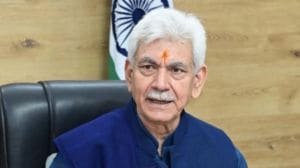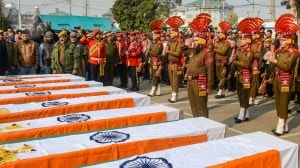Hot pursuit, cold feet
Strains in the US alliance with Pakistan are beginning to show with an increase in terrorist activity along the border with Afghanistan as w...

Strains in the US alliance with Pakistan are beginning to show with an increase in terrorist activity along the border with Afghanistan as well as within Pakistan.
The US claim that it has the right of hot pursuit from Afghanistan into Pakistan and that such a right had been privately conceded by the Pakistan government, demonstrates the limits of a crucial alliance forged without sufficient public disclosure.
Just as Pakistanis found out through the western media about the use of Pakistani bases by US troops during last year’s Afghan war, there are suspicions of other covert or undeclared agreements.
Unfortunately, such claims feed the Pakistani rumour mills and give rise to conspiracy theories, the bane of US-Pakistan relations since the 1950s. A relationship mired in ambiguous and covert arrangements rather than on a forthright friendship is bound to go through the periodic ups and downs that characterise the alliance. Instead of putting further pressure on Pakistan by demanding the right of hot pursuit, perhaps the US should seek the resolution of dilemmas created by the conflicting demands of Pakistan’s domestic politics and the security policies defined by its ruling oligarchy.
The US military seeks to cross from Afghanistan into Pakistan’s lawless tribal regions in pursuit of fugitive Taliban and Al Qaeda militants. According to the Pentagon, US forces have had the right of hot pursuit with the express consent of the Pakistani government despite Islamabad’s denials of an agreement to allow US troops to cross into Pakistan.
Popular sentiment in Pakistan against the US is increasing, fuelled in part by the prospect of a war with Iraq and by the perception that the US is insensitive to the concerns of the Islamic world. This limits the ability of an increasingly unpopular Pakistani government to fulfil US demands in the anti-terrorism effort. It also forces Washington to walk a tightrope.
Extremists have been at work in Pakistan in recent weeks with increasing ferocity. But western journalists have also reported witnessing disturbing trends. An Associated Press reporter made public an interview with a former Taliban official who claimed that Taliban and Al-Qaeda remnants were regrouping inside Pakistan and that Al-Qaeda even ran secret training camps.
The Pakistani government blames private individuals and groups for sheltering Taliban and Al-Qaeda members and says it is doing its best to track them down. Under such circumstances, deployment of US personnel in Pakistani territory without full Pakistani backing would put American soldiers at considerable risk. It would also erode further Pakistani support for the US military operation in Afghanistan.
Pakistan is, in part, paying the price of its past support for the Taliban and its tolerance of Islamic militants. US actions, such as the INS decision to finger-print and register all Pakistani visitors to the US and the obtrusive presence of the FBI in Pakistani cities, is adding to frustration among the Pakistani people over what is seen as a loss of Pakistani sovereignty.
As in some Middle Eastern countries, Washington’s closeness with rulers lacking in legitimacy increases anti-US sentiment among the general public while the rulers themselves tread softly in dealing with anti-US elements to protect their own position at home.
Pakistani authorities cannot deny their role in the release, ostensibly on court orders, of the leaders of groups that were declared terrorist organisations by the government earlier this year. Until the release of these militant leaders, General Musharraf’s regime had shown little regard for juridical niceties.
In thew last three The government got round the problem of ‘‘law’’ by issuing 297 ordinances in three years and by purging the superior courts under the Provisional Constitution Order. The judicial orders in favour of Jaish-e-Muhammad leader Maulana Masood Azhar and Lashkar-e-Tayyaba chief Hafiz Muhammad Saeed about the government’s commitment to the war against terrorism. Statements by Pakistani government spokesmen notwithstanding, everyone knows that once it decides to keep someone in prison, the government can find many ways to attain that objective.
The threat of hot pursuit may be Washington’s way of forcing General Musharraf to recognise that the US wants a paradigm shift from his regime and that the bits and pieces of cooperation, which Islamabad considers a major contribution, is simply not enough. Pakistan will remain important for the US because of its nuclear weapons capability, its traditional friendship with Washington and its declared support in the war against terrorism.
But the US sees the situation in Pakistan as tenuous and the expectations of the two allies from each other are very divergent. The US policy of depending exclusively on its military regime for a change in the country’s overall direction has not worked. The U..would do better by seeking ways of securing cooperation from various elements of Pakistani society that are themselves angry with the country’s unending cycle of violence.
Pakistan’s own leadership, too, must abandon its tactical approach to relations with the world’s sole hyper-power and evolve a strategy of genuinely befriending the US without compromising national sovereignty.
If Pakistan’s own law enforcement was beyond reproach, there would be no grounds for the US (or anyone else, for that matter) to make demands of hot pursuit.
The writer is Visiting Scholar at the Carnegie Endowment for International Peace in Washington. Write to him at hhaqqaniexpressindia.com





- 01
- 02
- 03
- 04
- 05


























